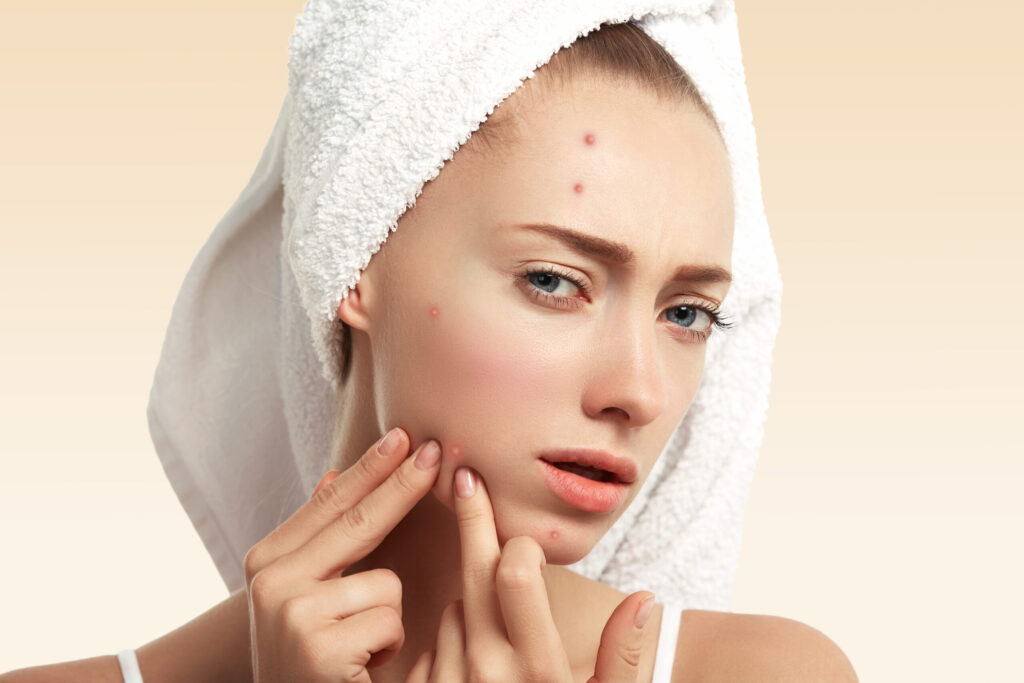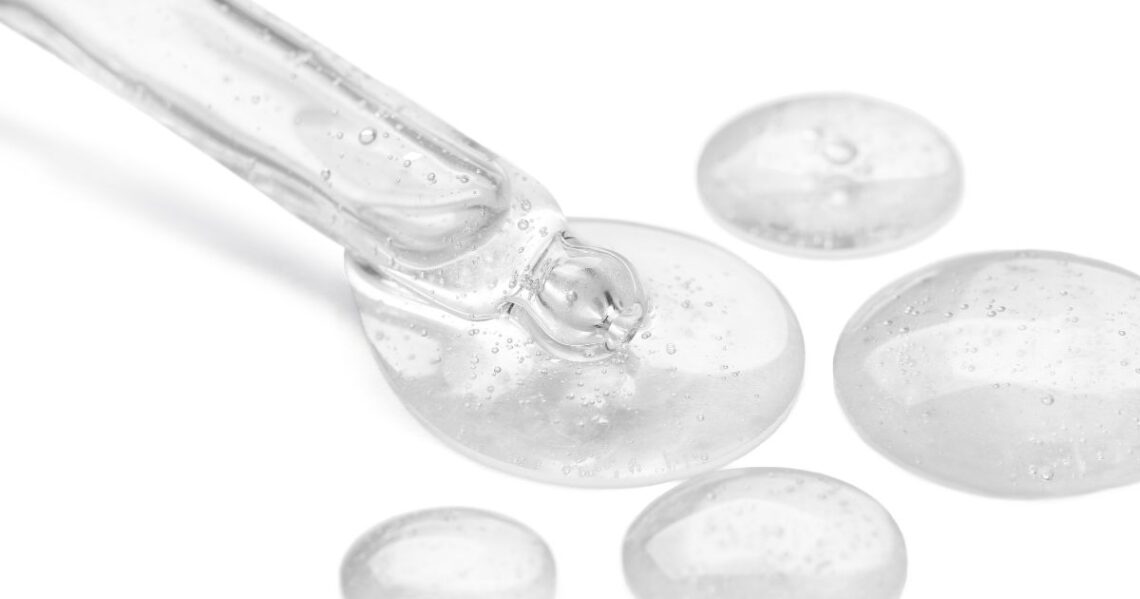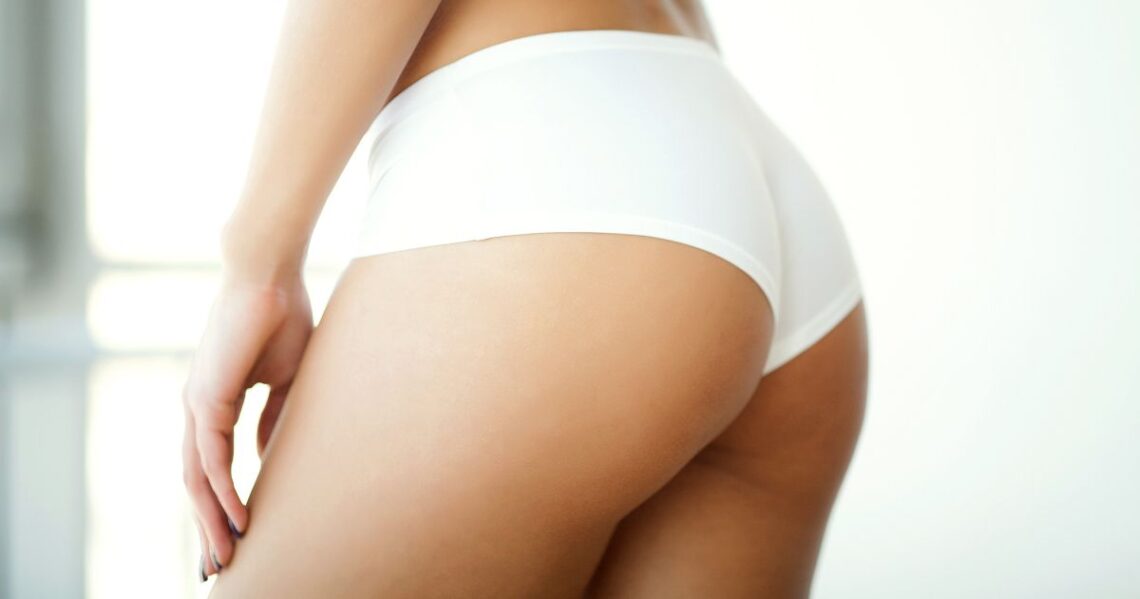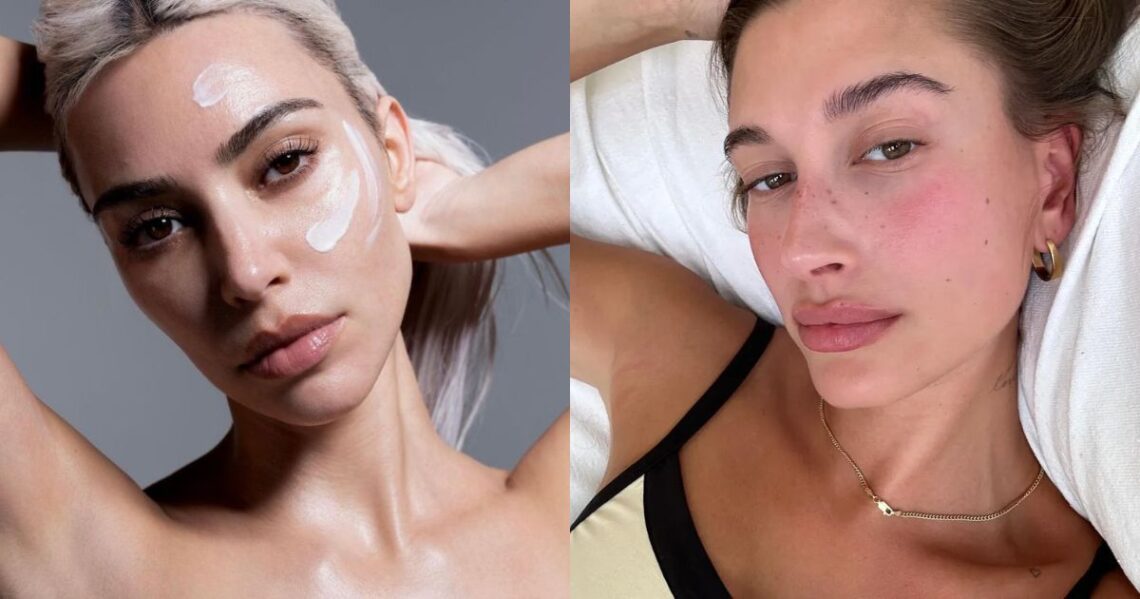Frustrated about all the red blemishes marring your skin or struggling with massive acne breakouts? Pimples and acne are two common skin issues faced by many people across the globe. If you struggle with these issues, remember that you are not alone! Many people experience acne and even though it can feel embarrassing, it is truly not. If you want tips and tricks on preventing pimples, read on.
There are several steps you can take in preventing pimples. This complete guide to acne will offer an understanding of what acne is, different types of acne, causes and symptoms. Most importantly this guide will offer skincare recommendations of products specifically developed for acne-prone skin.
What is Acne?
Acne is a common skin condition that causes pimples, oily skin and sometimes painful, sensitive skin. This condition is very common and will at some point affect most people during their life. You can experience acne and pimples that only last for short periods of time, but also struggle with it for months to years at a time.
Pimples are often smaller spots that appear one by one and usually disappears after a while. Acne on the other hand is a more serious issue, where several blemishes appear at the same time. These blemishes can be painful, hard to remove and sometimes require treatment.
Acne can appear on the face, back and chest. It can look different from person to person, and the spots the condition cause can vary between blackheads, whiteheads, papules, pimples, and even cysts. Cysts are the most severe type of spot caused by acne and has the highest risk of leaving permanent scarring. If you experience a lot of painful cysts, you should seek professional help.
The most common symptoms of acne are spots, crusting of skin bumps, cysts, papules (small red bumps), pustules (small red bumps with white or yellow pus), redness around the skin, scarring, whiteheads and blackheads).
If you want more medical knowledge on this topic, check out NHS article on acne.
How to Prevent Pimples and Acne?
The most serious causes of acne might need professional help and medical treatment. If you struggle with excessive and painful acne, it can be wise to seek professional help like consulting a dermatologist or your local doctor. For milder types of acne and pimples, you can try to treat it at home. Here are some tips to prevent pimples and acne.
1. Lifestyle Changes
Firstly, make some lifestyle changes. As acne can be caused by hormonal unbalance, eating a healthy and balanced diet, exercising regularly and stress management techniques can impact your mood and overall skin health. It can be an idea to reduce the intake of processed foods, dairy products, alcohol and refined sugars, as this can help ease breakouts.
2. Identify and Avoid Triggers
Secondly, identify your triggers and avoid them. If you touch your face a lot, you can worsen your acne. Acne can also be triggered by makeup and products with a lot of oil in them. Check if your day-to-day products contain heavy oils and ingredients that clogs your pores.
3. Limit Makeup
There is nothing wrong with wearing makeup if you have pimples or acne, but it is recommended that you limit your use of makeup products. The reasons for this is that the makeup products will clog your pores and irritate your skin. This can cause more breakouts and extend the time it takes for the pimples and acne to heal and disappear. If you choose to wear makeup, it is crucial that you remember to remove it! Make sure to use a gentle makeup remover to remove all makeup at the end of the day. Following this, you should also cleanse and moisturise your skin.
4. Do Not Touch Your Face!
This step might seem obvious, but it is still important. Do not touch your face if you struggle with breakouts and acne. If you touch your face without washing your hands, you transfer bacteria and dirt to your face – which will worsen your acne.
5. Skincare Routine!
The final, most important step is to create an acne safe skincare routine.
Skincare Routine For Preventing Pimples
When preventing pimples and managing acne, one of the best ways to do is to create an acne safe skincare routine. It is important to keep dirt and bacteria away from your breakouts. You should incorporate a skincare routine both in the morning and the evening to ensure that you are taking proper care of your skin.
Depending on your skin type and the degree of acne you have, the routines can be slightly customised. What is important here is that you test out what works for your skin and your skin needs.
A suggested skincare routine for acne-prone skin can look like this. To keep it simple and manageable, we have created a routine that can be used both morning and evening.
Step 1: Cleanser
The first step (after removing makeup if you wear any of course) is cleanser. It is important to cleanse your skin to get rid off all the dirt, oil and impurities that have built up during the day. Two recommended cleansers are:
CeraVe Blemish Control Face Cleanser
CeraVe SA Smoothing Face and Body Cleanser
Step 2: Acne Treatment
The second step is to apply acne treatment. One recommended product is the Murad Rapid Relief Spot Treatment
Step 3: Moisturiser
The third step is to moisturise. It is important to keep the skin hydrated, but if you struggle with acne try to use moisturisers that are lightweight hydrators. Avoid thick creams that are filled with fragrances and oils as this will only clog your pores and irritate your skin.
Some recommended moisturisers are:
La Roche-Posay Effaclar Duo (+) Anti-Imperfections Moisturiser
La Roche-Posay Effaclar Mat Mattifying Moisturizer
Dermalogica Active Moist Hydrating Oil-free Moisturiser
Step 4: Apply SPF
This is only necessary if you plan on going outside during the day. SPF is important to acne prone skin as it protects the skin barrier from further damage. UV exposure can also worsen active acne and increase scarring – which you do not want. For example:
La Roche-Posay Anthelios Clear Skin Face Sunscreen for Oily Skin
Also, if you want to save a step, check out moisturisers that include SPF. For example:
CeraVe Oil Control Ultra-Light Face Moisturiser SPF 30
Other Product Recommendations
If you already have a skincare brand that you love, like La Roche-Posay it can be worth it to check out if their products are suitable for acne-prone skin.
You can also check out this overview of all the skincare products on Dr.Skincare that is suitable for acne-prone skin.




